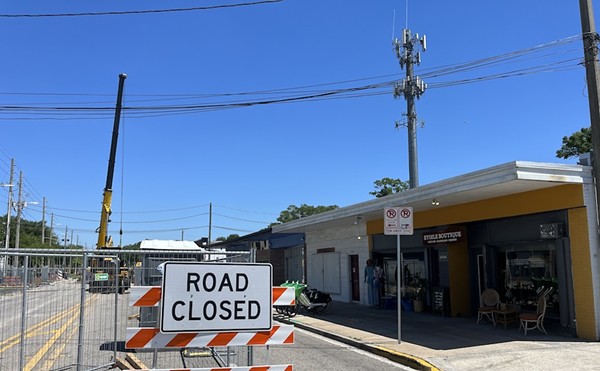An astounding confluence of events occurred last week in Washington. In one room on the Capitol, the FBI director was admitting, under oath, to the House Intelligence Committee, for the first time in American history, that associates of the president of the United States were under investigation for colluding with an adversarial foreign government to disrupt a federal election to the president's advantage.
In another room, the Senate Judiciary Committee was beginning its questioning of that president's nominee for the Supreme Court, a lifelong appointment that will have ramifications long after the president leaves the Oval Office, and likely long after he leaves the earth.
There are three very good reasons why Senate Democrats should go to the mat to oppose Neil Gorsuch, President Trump's Supreme Court nominee.
The first is both the most obvious and the weakest argument: He would be a reactionary conservative in the mold of the man he would replace, the late Antonin Scalia. But while nominees have been rejected on ideological grounds – see Bork, Robert – they've never been filibustered, which is what Democrats would have to do. (And this would, in essence, be daring the Republicans not to eliminate the filibuster altogether, which they might in any event.)
The second and most intuitive is that the mere fact that the president is under FBI investigation – as the historian Douglas Brinkley put it, "There's the smell of treason in the air" – puts such a cloud over his administration that all major initiatives should grind to a halt until it is resolved: health care, the budget, tax reform and, yes, the Supreme Court nominee.
The third is, for our purposes, most important. It's that Scalia died a year ago, when Barack Obama was president. Obama nominated a boring, unobjectionable, qualified, middle-of-the-road guy named Merrick Garland to succeed him. The Republicans, tossing out hundreds of years of precedent and senatorial decorum, declined to so much as give the man a hearing. So no, the Democrats don't owe Neil Gorsuch a goddamn thing. He – and all other Trump nominees not named Merrick Garland – should be filibustered on principle.
But what happened to Garland is symptomatic of a disease permeating our politics in recent years, mainly on the right: It's a willingness to take a blowtorch to longstanding norms in the blatant pursuit of power, a lack of respect for the will of voters when those voters don't see things your way. This has been most pronounced among conservative actors in reaction to local elected officials' progressive decisions. You see it in things like state governments attempting to crack down on their sanctuary cities, or in North Carolina, where in December the Republican legislature sought to effectively neuter the incoming Democratic governor.
And last week, Orlando got its own taste of this action, when Gov. Rick Scott took the unprecedented step of removing State Attorney Aramis Ayala, an elected official who answers to her constituents, from the Markeith Loyd case because she used her discretion and pledged not to seek the death penalty – not then, not ever.
I won't fully litigate my feelings on capital punishment here. I'm against it. It's anachronistic, arbitrary, futile as a deterrent, and racist and expensive in practice. You can disagree. You'd be empirically wrong, but that's fine. It's also on the wane.
In 2016, there were only 20 executions in the United States, of which only one took place in Florida, according to the Death Penalty Information Center. That's the lowest nationally since 1991 and a steep decline from 1999, when 98 people were put to death. Florida peaked in 2014, when it executed eight people; its current drought owes first to a U.S. Supreme Court ruling last January that judges couldn't override jury recommendations against a death sentence and then another High Court ruling in October that jury death sentences had to be unanimous. Death sentences are also declining. In 2015, only 49 people were sentenced to die in the United States, down from 315 in 1996.
As Slate reported last week, of the nation's 2,300 prosecutors, 99 percent did not seek the death penalty last year. Ayala, the first African-American elected prosecutor in Florida, is decidedly in the majority. What sets her apart is that she made her intentions clear – and her intentions ran contrary to those of Rick Scott. So Rick Scott decided that the longstanding norms granting prosecutors discretion over when to seek the death penalty no longer apply. He'll make those decisions for you, thank you very much.
I should back up here a second and say that this is something voters should have been able to consider in November. It's a failure of the local media and, quite frankly, of Ayala and her opponent, Jeff Ashton, that this question was never raised during the campaign. But that doesn't change that fact that, if voters dislike Ayala's decision here, it's up to them to reject her in 2020. It's not up to Rick Scott – who lost Orange County by 12 percentage points and Osceola by 8 – to make up their minds for them.
Loyd is about as unsympathetic a character as you can find: an accused cop-killer who allegedly murdered his pregnant ex-girlfriend. If you're making an argument for capital punishment, he's exhibit A. Which means he's both a testament to the strength of Ayala's convictions and an ideal target for Scott's tough-on-crime posturing.
But that doesn't change the fact that, regardless of whether Ayala is making the right decision (and she is), it's her decision to make, not Scott's. The fact that Scott is willing to shamelessly abrogate her authority, to substitute his judgment for hers to ensure that a black man get the needle – and we are naive to pretend there's no racial aspect to the politics of his intervention – shows that, like in D.C., traditional norms are dead.
Power is now the now the only currency that matters.

















